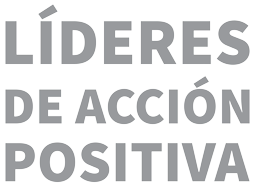Patricia Hernández expone su trabajo en el “2nd World Congress on Primary Healthcare and Medicare Summit”

 Liderazgo Anáhuac en Humanismo
Liderazgo Anáhuac en Humanismo
La coordinadora de la Maestría en Bioética en línea presentó en el el “2nd World Congress on Primary Healthcare and Medicare Summit” el tema “Conscientious objection in Mexico: Scope and limitations in bioethics”.
La maestra Martha Patricia Hernández Valdez, investigadora y coordinadora de la Maestría en Bioética en español, que imparte la Facultad de Bioética de nuestra Universidad, presentó su trabajo “Conscientious objection in Mexico: Scope and limitations in bioethics”, abordando el tema de la objeción de conciencia en los doctores mexicanos, durante el “2nd World Congress on Primary Healthcare and Medicare Summit” en París, Francia.
De igual manera, abordó el tema de la importancia de la comunicación médico-paciente y lo esencial que es educar a la población en estos ámbitos, que muchas veces son desconocidos.
La maestra Hernández culminó su ponencia resaltando que una de las claves para la buena objeción de conciencia es utilizar la metodología interdisciplinaria, para así poder llegar a una mejor toma de decisiones.
Abstract
The international scientific community has recognized the importance of expression and thought in health personnel, as a human right. The conscientious objection underlines an antagonism against an aspect of regulatory content that can be legal, cultural, social, labor, economic, psychological or spiritual, making impossible the individual well-being. In this regard, one of the anthropological foundations of this phenomenon is the human behavior towards good, avoiding evil. In the legal dimension, it embraces the fundamental right of ideological freedom, as part of the universal recognition of human dignity.
Conscientious objection itself does not represent the solution to the extraordinary bioethical dilemmas. Therefore, it is essential to create legal structures that support general promulgations, in order to guaranteed recognition and the access of existed rights. In Mexico, there have been many determinations that indicated the relevance of this topic; in this regard, on September 20, the Supreme Court of Justice ruled about the ambiguous regulation, generating a controversy that has been handled from different perspectives.
Revisa el documento completo en el siguiente enlace:
https://www.primaryhealthcare.scientexconference.com/speakers/Patricia-Hernandez-Valdez
Más información:
Facultad de Bioética
MPSS. Angela Pinilla Monroy
angela.pinilla@anahuac.mx






